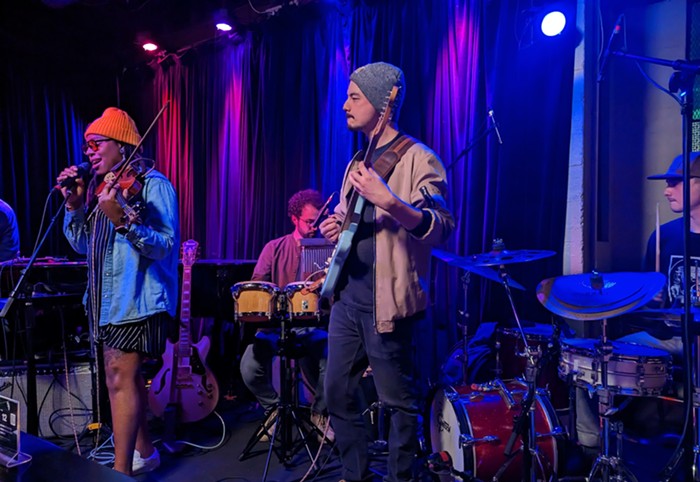"WE DON'T WANT to force anything. We're not a career band. We're not trying to make a living by playing music. We're just playing music for the love of playing music." These comments, courtesy of Jacob Bannon from Converge, fall right in line with what musicians nursed in the punk rock ethos should say. They might not mean it, but for the sake of Strummer, they sure as hell better say it.
But it's clear that the sincere frontman for Converge isn't merely paying lip service. For nearly two decades now, Bannon & Co. have torn through the hardcore landscape with a flurry of masterfully precise recordings, each scorching the earth with the subtlety of a napalm attack that falls from the heavens. Straddling that great divide between hardcore and metal (please don't call it "metalcore"), Converge are humble in their offering—a brutal assault of punishing noise, breakneck speed, and music nerd technicality—yet approach their work with a very serious sense of purpose. Surrounded by the artistically bankrupt hardcore masses and knuckle-dragging ghosts of the genre's past, Converge continue to raise the expectations of an entire musical community with each release, and they do so unimpeded by those who cling to their heels along the way.
The vast authority of this Boston band extends far from the stage, as Converge's influence resonates in the studio (guitarist Kurt Ballou owns Godcity Recording Studio and has left his mark on countless heavy recordings), through Bannon's Deathwish, Inc. record label, various side projects (most notably Doomriders, fronted by bassist Nate Newton), and especially through the band's iconic artwork.
"I think it's just intrinsic to painting the full picture or telling the whole story with a record," explains the pixel-pushing, larynx-shredding Bannon when discussing the band's artistic identity. The Art Institute of Boston graduate continues: "A band isn't just necessarily music. There are a lot of things that make up the character of a band. I've always felt that a well thought out, carefully executed character is really an important thing for a band to have. It's something I've been interested in, as a listener of music. It's something I've been a fan of. I've always wanted to bring those qualities to any effort that I put forth as an artist."
Less concerned with the volume/aggression/tempo arms race, Converge painstakingly assemble each recording at a deliberate pace, even if this assembly means the band vanishes for years on end to do so. Their tectonic shift in style once again rumbled with last year's Axe to Fall, a recording that will make you flinch from the sheer level of noise created in the first minute of album opener "Dark Horse," and fails to relinquish the intensity a dozen tracks later. But for Converge, everything started with their fourth full-length, 2001's Jane Doe. In this astounding landmark moment in hardcore, Converge shook free of genre restraints and offered a crisp artistic vision amid a swirling mass of towering volume and lyrical despair. To an outsider, it was with Jane Doe that everything changed. But to the band, it was just another step in their ascent toward attaining artistic perfection.
Really, nothing changed," explains Bannon. "Even now, nothing's changed a few records later. I always feel that it's interesting; people will look at certain releases as benchmarks for artists or for bands. But if you're not doing something interesting for yourself and doing something exciting with each record then it's just not worth doing."



















